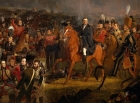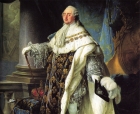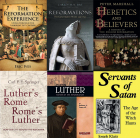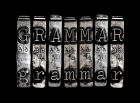Using historical scholarship
There is a long tradition of history teachers using historical scholarship whether to shape their enquiry questions using real questions that academic historians pursued, to gain new knowledge for enriching lessons or simply to keep inspiring the passion that fired their first love of history so that they can display it to pupils in the classroom itself. A tradition within this is the curriculum component ‘Interpretations’ - a sustained fixture of England’s national curriculum for history since 1991 which has spawned its own tradition of shared practice, research and debate. If you want to find out specifically about ‘Interpretations of history’, where there will be much reference to historical scholarship, go to Interpretations. Read more
-

A team-taught conspiracy: Year 8 are caught up in a genuine historical debate
ArticleClick to view -

Anything but brief: Year 8 students encounter the longue durée
ArticleClick to view -

Are historical thinking skills important to history teachers?
ArticleClick to view -

Assessing the Battle of Waterloo in the classroom
ArticleClick to view -

Building meaningful models of progression
ArticleClick to view -

Conceptual awareness through categorising: using ICT to get Year 13 reading
ArticleClick to view -

Continuity in the treatment of mental health through time
ArticleClick to view -

Creating confident historical readers at A-level
ArticleClick to view -

Cultivating curiosity about complexity
ArticleClick to view -

Cunning Plan 167: teaching the industrial revolution
ArticleClick to view -

Cunning Plan 181: Incorporating a more global perspective within Key Stage 3
ArticleClick to view -

Deepening Year 9’s knowledge for better causation arguments
ArticleClick to view -

Developing students' thinking about change and continuity
ArticleClick to view -

Developing transferable knowledge at A-level
ArticleClick to view -

Disembarking the religious rollercoaster
ArticleClick to view -

Does the grammatical ‘release the conceptual’?
ArticleClick to view -

Duffy's devices: teaching Year 13 to read and write
ArticleClick to view -

Effective essay introductions
ArticleClick to view -

Exploring big overviews through local depth
ArticleClick to view -

Exploring the challenges involved in reading and writing historical narrative
ArticleClick to view

